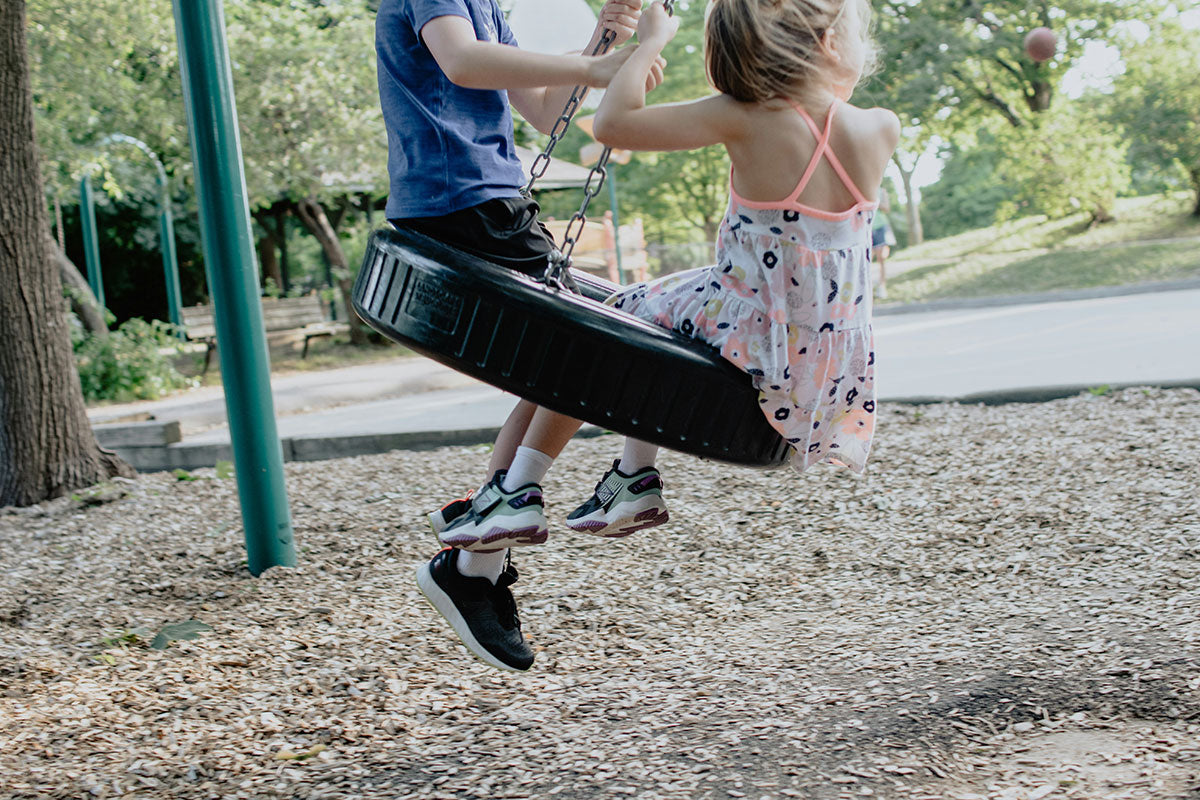Children develop at an incredible speed through movement and play. Sometimes I even get the impression that a weekend with grandma and grandpa is enough for my children to see a "leap". Children lay the foundation for their physical, mental and social skills in their first years of life. Not only the activities themselves play a key role, but also the play equipment that is available to them. From slides to swings: play equipment has been proven to promote the development of motor and cognitive skills. But why is movement so important for children, and what role does play play equipment in this development?
Exercise: A key factor for healthy development
For children, exercise is much more than just a way to let off steam. It is an essential basis for physical and mental development. Through the various movements they learn, children develop their gross and fine motor skills, improve their coordination and train their balance. Studies show that children who exercise a lot are not only physically fitter, but also learn faster and more effectively. The World Health Organization (WHO) recommends that children under the age of five should be active for at least three hours a day. This time can be filled by free play, sports or exploring their surroundings. Play equipment such as slides are particularly important here, as they encourage children to exercise in a playful way while challenging their motor skills.
Play equipment as a promoter of motor development
Slides, swings and climbing frames not only provide children with fun, but also support their physical development. When a child climbs up a slide and then slides down, they not only train their coordination skills, but also their muscles and balance. According to a study by the University of Cambridge, climbing and sliding on play equipment contributes significantly to improving body control. Slides in particular challenge children to plan and coordinate their movements. This strengthens gross motor skills, i.e. the ability to control large movements with arms and legs. In addition, physical activity helps to train the sense of balance and strengthen confidence in one's own body.
Cognitive Benefits of Playful Movement
In addition to motor development, play equipment also plays an important role in cognitive development. Movement has been proven to support brain growth and neural networking. When children play on a slide, they think about the best way to climb up and thus develop problem-solving skills. Experts point out that physical activity also improves the ability to concentrate. Studies such as those by Dr. John Ratey, a neuropsychiatrist at Harvard Medical School, show that physical activity has positive effects on brain performance. It improves cognitive flexibility and increases children's willingness to learn.
Play equipment as a social learning field
Play equipment is often also a social meeting place for children. Here they learn to interact with other children, take turns and be considerate. These social experiences are crucial to the development of empathy and communication skills. They therefore provide a platform on which children can come into contact with others. They learn to resolve conflicts when it comes to who gets to slide next and experience the importance of cooperation and fairness.
Conclusion
Play equipment is more than just a way to keep children busy. It makes an indispensable contribution to physical, cognitive and social development. Play equipment is indispensable, especially in the first years of life, when children learn the most and develop the fastest. As parents, we should therefore ensure that we always offer children sufficient opportunities for exercise and play - whether outdoors or with well-designed indoor play equipment.



